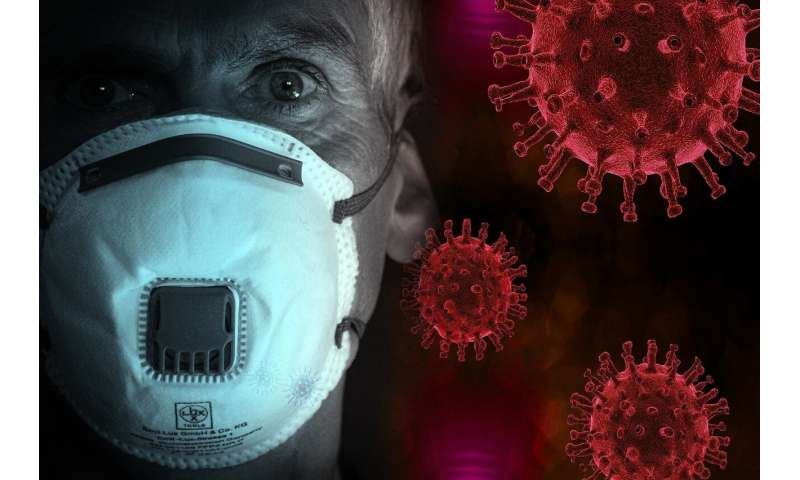France, Spain to announce lockdown exit plan as Aussies hit waves


France and Spain were on Tuesday set to announce plans to lift strict coronavirus lockdowns that have endured for weeks, while on the other side of world surfers returned to Bondi Beach as Australia took its own first steps to ease restrictions.
Countries are beginning to chart their path out of shutdowns imposed to stem the spread of the deadly disease, which emerged in China late last year and has now infected more than three million people worldwide.
At least 209,000 people have died from COVID-19—a quarter of them in the US, the worst-hit country followed by Italy, Spain, France and the UK.
As some death rates slow, governments are exploring how to relax stay-at-home orders that are exacting their own damaging economic and psychological tolls, without sparking a dangerous second wave of contagion.
Hundreds of eager surfers and swimmers rushed into the waves at Bondi Beach in Sydney, five weeks after police closed the area because of large crowds ignoring social distancing rules.
“I’ve been excited for like a week, I was like: 7:30 right here,” Diane Delaurens told AFP, dripping after his early-morning surf session.
The sand remained largely empty, as people are still banned from sunbathing.
With a handful of US states taking steps to revive their shuttered economies, schools and shops in some parts of Europe have opened up.
From next week, Italians will be able to exercise outdoors and visit relatives—but only if they wear masks and refrain from hugs and handshakes.
Spain has already begun easing its tight lockdown and was set to announce more detailed plans on Tuesday, as was France, which has said it will begin to ease confinement on May 11.
Recession fears
However, the world’s economic outlook remains bleak.
Forecasts warn of the worst global recession in a century, with oil prices tumbling and the travel and tourism sector badly hammered.
US President Donald Trump again took aim at China’s handling of the crisis, suggesting the United States may seek damages over the devastating pandemic.
“We are not happy with China… we believe it could have been stopped at the source. It could have been stopped quickly and it wouldn’t have spread all over the world,” he said.
When asked about a German newspaper editorial that called on China to pay Germany $165 billion in reparations for economic damage done by the virus, Trump said the US could take its own action to hold China accountable.
“We are talking about a lot more money than Germany’s talking about,” he said. “We haven’t determined the final amount yet. It’s very substantial.”
‘Human contact’
For parts of the US, the lockdown has begun to ease—despite criticism from health experts, but much to the delight of some citizens.
“We need human touch, human contact,” said 64-year-old Kim Kaseta, as she tucked into breakfast in the US state of Georgia.
Most US states do not yet have sufficient COVID-19 testing to consider relaxing stay-at-home orders, according to an analysis by Harvard researchers and the health news site Stat.
Trump said on Monday that testing was being rapidly expanded and that he expected to see a “lot” of schools open up, even if there is not much time left in the school year.
Despite other European countries moving towards reopening schools and shops, British Prime Minister Boris Johnson said it was too early for the UK to follow suit.
Johnson, who has emerged from his own battle with the virus, said Monday he could not “throw away all the effort and the sacrifice of the British people and to risk a second major outbreak.”
His comments stood in contrast to those made by New Zealand’s Prime Minister Jacinda Arden, who said the nation had won the battle against “widespread, undetected community transmission”.
New Zealanders indulged in fast food and coffeeshop treats for the first time in five weeks on Tuesday as the country eased its strict lockdown that banned any form of takeaway.
“We see the difference in other countries and I don’t envy them, that’s for sure,” said Wellington resident Cheryl Robertson, who planned to celebrate with a curry.
No one knows when the virus crisis will end as scientists race to develop treatments and, eventually, a vaccine.
Source: Read Full Article